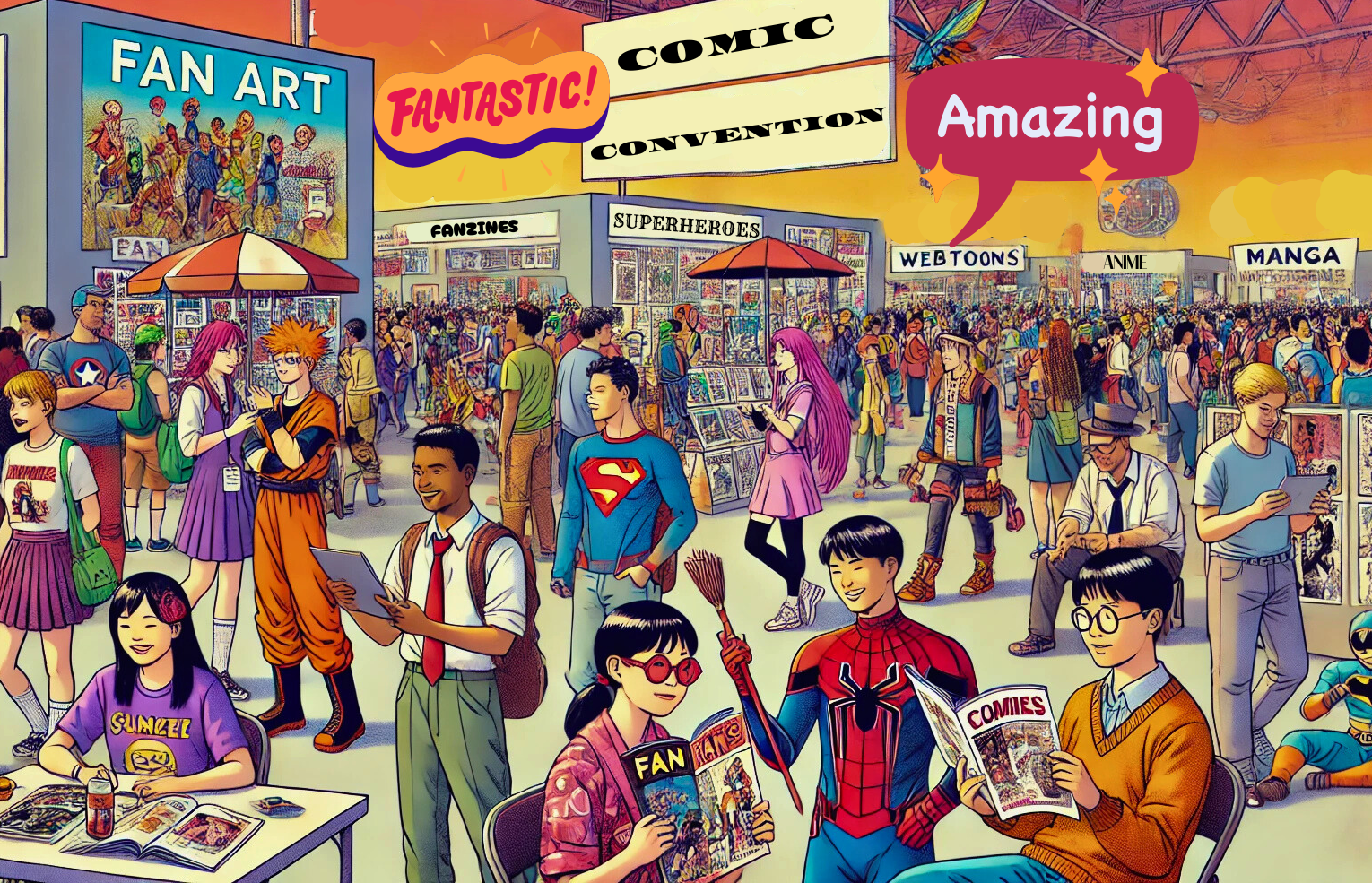
In today's global pop culture, serial graphic narratives such as anime, superhero comics and webtoons are closely intertwined with fan cultures. Fans play a central role in the reception, production, transformation and popularity of these narratives by actively discussing, reinterpreting, expanding and transferring them into transmedia worlds.
But what does it mean to be a fan? How do fans influence the production processes, narratives and discourses of serialised media? What role do they play in the distribution and popularisation of such formats and what legal and ethical issues arise from fan productions? How do power structures shape fandoms, particularly in relation to gender, ethnicity and social belonging, and what different factions can emerge within them? How does fan culture differ in an international context, especially between Western and Asian media?
This seminar will explore these questions by analysing fan culture(s) in the context of popular serial media. Drawing on fan studies theory (Fiske 1989, Jenkins 1992, Hills 2002, Hellekson/Busse 2006, Booth 2016/2018, Gray 2021), we will reflect the structural characteristics and aesthetics of serialised narratives and discuss how fan practices and fan media such as fanzines, fanfiction, fanart, conventions, cosplay or social media discourses can influence them. Special attention will be dedicated to the interaction in fan communities (fandom) and how these dynamics have evolved in the digital age.
Using interdisciplinary approaches from literary, media and cultural studies as well as concrete case studies, the seminar offers an in-depth examination of the complex and dynamic negotiation processes in fandom(s). By analysing case studies from popular series we will explore current developments in fan culture and discuss their impact on 'media consumption', identity and community building.
- Dozent/in: Anne Deckbar